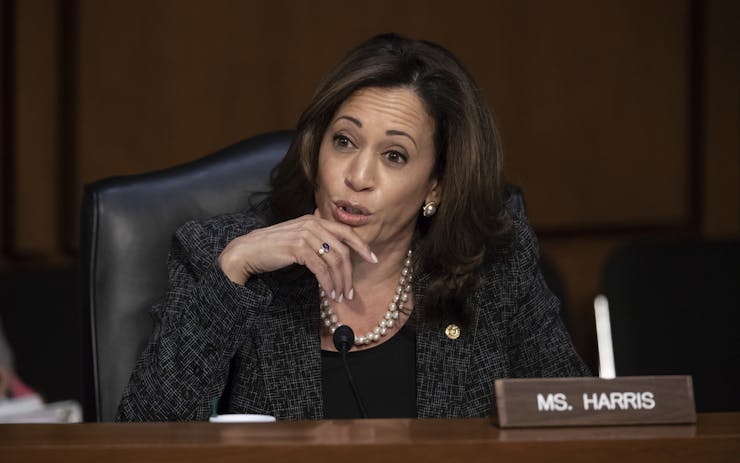US Sen. Kamala Harris (D-CA) on Thursday announced her support for legalizing cannabis at the federal level, signing on to congressional legislation that would remove cannabis from the US Controlled Substances Act and take initial steps to address the lasting consequences of the drug war.
“Making marijuana legal at the federal level is the smart thing to do and it’s the right thing to do,” Harris tweeted this morning, including a video statement she gave to the news outlet NowThis. “Today, I’m announcing support for [Sen. Cory Booker’s] Marijuana Justice Act.”
Signing on to the bill (S.1689) comes as the first significant move Harris has made in favor of cannabis reform despite more than a year of railing against prohibition. Nearly a year ago, she publicly decried US Attorney General Jeff Sessions’ drug war rhetoric nearly and pledged to defend state legalization from federal interference.
But she’s since taken few formal steps to change the system, drawing fire as one of the few senators from a legal-cannabis state to not support any of a growing number of reform bills introduced by colleagues.
In 2014, as Harris sought re-election as California attorney general, a reporter asked about her views on legalization, pointing out that her opponent at the time supported it. “He’s entitled to his opinion,” Harris replied with a laugh.
In the video announcing her endorsement of the Marijuana Justice Act, which Sen. Cory Booker (D-NJ) introduced in August 2017, Harris says the legislation does “what we need to do to finally make marijuana legal at the federal level in the United States.”
Making marijuana legal at the federal level is the smart thing to do and it’s the right thing to do. Today, I’m announcing my support for @CoryBooker’s Marijuana Justice Act. pic.twitter.com/cOh3SjMaOW
— Kamala Harris (@SenKamalaHarris) May 10, 2018
The bill so far has struggled to find support in Congress. In the Senate, only Sens. Ron Wyden (D-OR), Kristen Gillibrand (D-NY), and Bernie Sanders (I-VT) have signed on as cosponsors.
“African Americans use marijuana at roughly the same rate as whites but are approximately four times more likely to be arrested for possession.”
In addition to removing cannabis from the Controlled Substances Act, the Marijuana Justice Act would also expunge federal convictions for simple cannabis possession, allow people behind bars for cannabis-related crimes to petition the court for resentencing, create incentives for states to address racial disparities in state-level cannabis arrests, and establish a community reinvestment fund that would aid communities most impacted by the drug war.
“The fact is that marijuana laws are not applied and enforced in the same way for all people,” Harris says in the video. “For example, African Americans use marijuana at roughly the same rate as whites but are approximately four times more likely to be arrested for possession. That’s just not fair. We need to change the system.”
“The laws we have are not fair in terms of application and in terms of enforcement,” she continues later in the clip. “We know that there are certain communities that use marijuana without any repercussion whatsoever. … But there are other communities for which it’s completely criminalized, and people end up being arrested, being prosecuted, they end up spending time in jail or prison.”
Booker, who also appears in the video, notes that “two of the last three presidents admitted to using drugs. Congresspeople, senators have admitted to using marijuana.”
Meanwhile, for young people and others in parts of the US, a felony cannabis charge “is like a lifetime sentence,” Booker says. “They can’t get food stamps, they can’t get public housing, many jobs, they can’t get loans from banks. It’s time that we not only legalize marijuana in our states but expunge the records of those who’ve been carrying that burden of past convictions of too long.”
“All because of their use of a drug,” Harris chimes in, “that should otherwise be considered legal.”
With her endorsement of the Marijuana Justice Act, Harris—who’s been talked about as a possible presidential candidate in 2020—is finally backing up that position with action.




